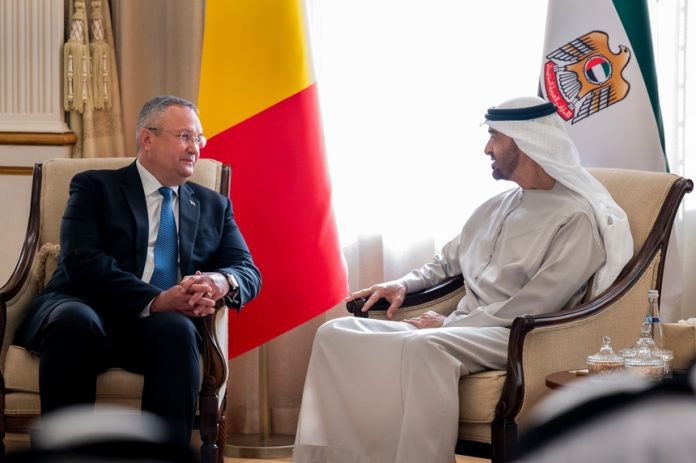
Romanian prime minister Nicolae Ciucă and sheik Mohamed Bin Zayed Al Nahyan, president of the United Arab Emirates, met Abu Dhabi June 20-21 in order to discuss the diversification of the European oil and natural gas supply.
The ministers of transport, energy, and agriculture were also present on behalf of the Romanian delegation. Aside from the president, the UAE was also represented by sheik Mohammed Bin Rashid Al Maktoum, the vice-president and prime minister of the country.
The main topics of interest during the meeting were projects in the field of energy, port infrastructure, agriculture, and IT. The officials tackled the tense situation in the Black Sea, where the Russian blockade has stymied international trade. Investment opportunities in Romania in the field of renewable energy, both offshore and on-shore, were also approached.
The visit preceded the second session of the Commission for Cooperation between the Government of Romania and the Government of the United Arab Emirates, which took place June 21-22.
Last month, the Emirati government made the decision to send cargoes of oil to the EU. The shipment followed a two-year gap in oil deliveries from the UAE to Europe and was the result of the attempts from the latter to find a replacement for Russian oil imports.
A week later, European Council chief Charles Michel and Commission President Ursula von der Leyen announced that the EU intends to block most Russian oil imports by next year in retaliation for the invasion of Ukraine. In 2020, 29% of the EU’s crude oil imports, 43% of its imports of natural gas, and 54% of its solid fossil fuel (coal) came from Russia.
Russian oil accounts for roughly 30% of Romania’s consumption. According to a statement made last month by Virgil Popescu, the country’s minister of energy, oil alternatives from Kazakhstan, Azerbaijan and Saudi Arabia could make Romania’s separation from Russian imports easier to bear. Kazakhstan, for example, already accounts for 40% of Romania’s fuel market.
The country is overall better equipped to deal with a blockade of Russian oil and gas. In terms of natural gas, only 10% of Romania’s consumption comes from Russia, compared to 49% for Germany, 77% for Bulgaria, and nearly 100% for North Macedonia, Bosnia, Moldova, Finland, and Latvia.
UE a semnat un acord pentru a importa gaze din Israel, o alternativă „de încredere” la gazul rusesc
















